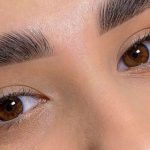Hey!
Skin, hair and nail care wouldn’t be successful if we didn’t supply our body with the right vitamins, like for example B-group vitamins. They don’t only positively influence our body but also skin, hair and fingernails. However, have you ever wondered what would exactly happen if there are shortages of any B-group vitamin in your body? And what if there is too much of them in your organizm? Trust me, this is both interesting and surprising. Here we go!
VITAMIN B12
Let’s start from the sources of vitamin B12: liver, kidneys, heart, lean meat, fish, egg shells, cheese, eggs and fungi. Recommended daily amount is 0,03 – 5 mg. Here are the tasks of vitamin B12:
- is crucial for carbohydrate, protein and fat chemical reactions,
- takes part in red blood cells production,
- combats anaemia,
- maintains proper functioning of your nervous system.
Shortage of vitamin B12 causes:
- issues with reacting to sense stimulus by hands and feet,
- general fatigue, exhaustion, weak muscles,
- pale skin and mucous membrane,
- lack of appetite, losing on weight,
- optic atrophy.
Vitamin B12 isn’t toxic, but when used for a long period it may cause allergic reaction. Also, when you keep taking big dose of vitamin B12, you may expect nose bleed.
VITAMIN B9
Luckily, this one occurs in many food products: green vegetables, leafy greens, red and orange fruit, as well as sunflower, nuts, wheat and liver. Recommended daily amount is 0,3 – 0,4 mg. It’s responsible for:
- regulating growth and proper functioning of cells,
- positively influencing nervous system and brain,
- taking part in preserving genetic material,
- improving functioning of digestive system, liver, stomach and bowels.
The symptoms of vitamin B9 deficiency include:
- anaemia,
- diarrhea,
- inhibition of growth and cell self-renewal processes,
- anxiety, depression, insomnia, headache, constant fatigue, problems with concentration,
- digestive disorders and lesser appetite,
- inflammations of oral cavity and tongue.
Too much of vitamin B9 may lead to insomnia, irritation and depression, digestive disorders and allergic reactions on skin.
VITAMIN B7
Its sources are: liver, walnuts and peanuts, soy flour, mushrooms, whole grain flour, egg yolk, almonds, sardines, crabs, brown rice, spinach, carrots, tomato. Recommended daily amount is 0,015 – 0,3 mg. Vitamin B7:
- takes part in glucose production as well as carbohydrate, fat and protein metabolism,
- helps thyroid gland function property,
- takes part in gas exchange,
- positively influences skin and hair.
Shortages of vitamin B – yet occurring very rarely – cause:
- skin lesions, acne and inflammations,
- hair loss,
- increased level of cholesterol,
- inflammatory bowel disease.
What’s interesting, vitamin B7 doesn’t trigger any side effects.
VITAMIN B6
You can find it in red meat, poultry, fish, potatoes and some fruit and vegetables. Recommended daily amount is 2 – 3 mg. It’s needed to:
- facilitate amino acids decomposition,
- store energy,
- create enzymes, hormones and hemoglobin,
- boost body immunity,
- relieve the symptoms of PMS.
Deficiency of vitamin B6 leads to:
- depression, apathy and insomnia,
- lowered resistance to infections,
- skin inflammation,
- anaemia,
- kidney stone,
- convulsions, nausea, vomiting,
- heart muscle disorders.
Excess of vitamin B6 may cause: foot and hand numbness, headache, fatigue. What’s important, if there’s too much of vitamin B6 in your body, your nervous system might get damaged seriously.




Leave a Reply